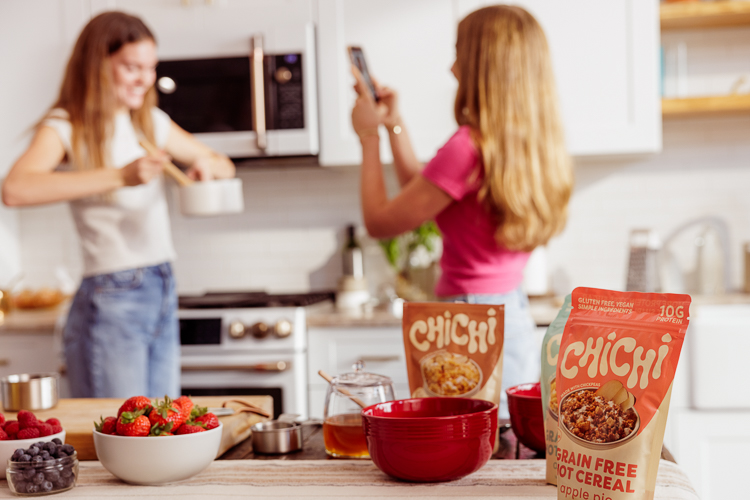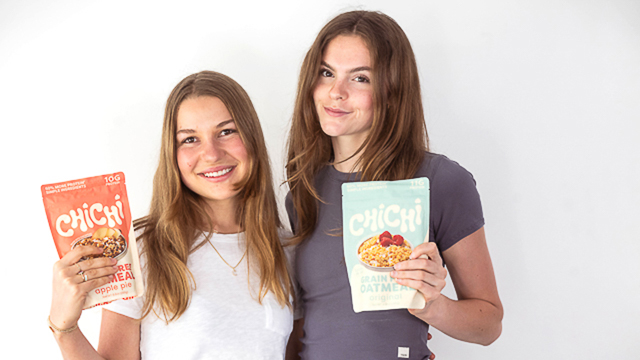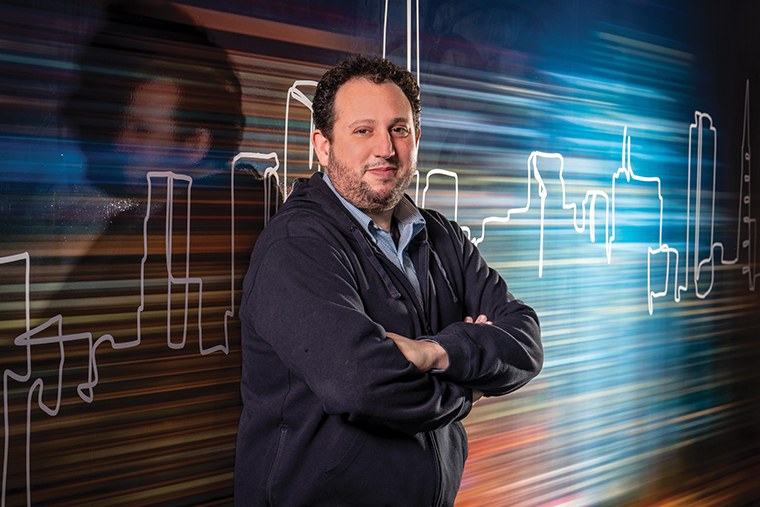Can two students disrupt the breakfast industry?
These entrepreneurs thrived with support from their WashU mentors.
When alum Chiara Munzi was a busy student at WashU, she created a chickpea-based hot breakfast cereal to fend off sluggishness. When she decided to develop her idea into a business, she turned to the entrepreneurial experts at WashU.

“I had this vision, and I just knew that everybody was going to like it,” Munzi says.
Munzi met her business partner, Izzy Gorton, when they were enrolled in The League, an Olin Business School course for WashU’s most advanced student entrepreneurs. During the class, they tapped the expertise of mentors from inside and outside WashU, including alumni. They also had access to the resources of WashU’s Skandalaris Center for Interdisciplinary Innovation and Entrepreneurship.
Since The League prioritizes customer feedback, they refined their cereal by handing out samples on campus and then tweaking the formula based on responses. “I would be at our commercial kitchen for hours and then try to fit in my homework,” says Gorton, who is also on the track team.

I would be at our commercial kitchen for hours and then try to fit in my homework.
Izzy Gorton
After plenty of trial and error, Munzi and Gorton settled on a tasty recipe. Again, they drew on WashU experts for advice on sourcing, production, marketing and sales, including WashU trustee Maxine Clark, founder of Build-A-Bear Workshop.
And then in 2022, they launched their company, ChiChi Foods. Since then, Munzi has graduated, and Gorton is entering her senior year. But their partnership continues as they grow their business online and with store placements in St. Louis and California.
They attribute part of their can-do attitudes to WashU mentors who told them to get outside their comfort zones and keep moving forward. “If we’re uncomfortable, if we’re scared, we have to do it anyway. That advice has been super helpful,” Munzi says. “My dream is that other young female founders look at us and see that you don’t need some special skill or money. We just kind of did it.”

My dream is that other young female founders look at us and see that you don’t need some special skill or money. We just kind of did it.
Chiara Munzi
Supporting innovation.


